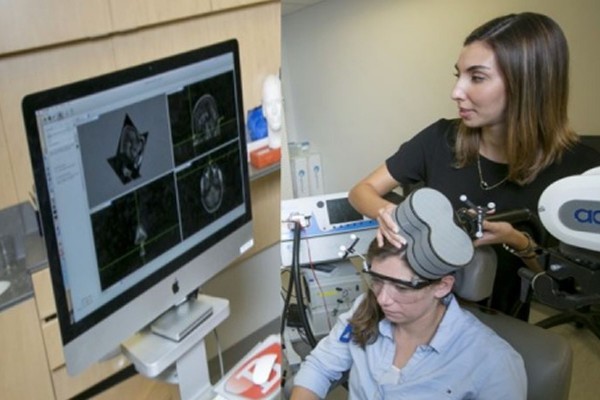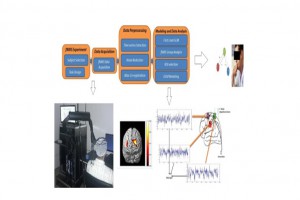rTMS improves memory in younger and older adults
Applying repetitive transcranial magnetic stimulation (rTMS) to the prefrontal cortex helps improve performance in working memory tasks for both young and older subjects. The findings could provide a potential new treatment option for those suffering from Alzheimer’s disease and other memory-related problems.
Applying repetitive transcranial magnetic stimulation (rTMS) to the prefrontal cortex helps improve performance in working memory tasks for both young and older subjects. The findings could provide a potential new treatment option for those suffering from Alzheimer’s disease and other memory-related problems.
Source: Duke Department of Neurology
Magnetic stimulation of the brain improves working memory, offering a new potential avenue of therapy for individuals living with Alzheimer’s disease and other forms of dementia, according to new research from the Duke University School of Medicine.
Healthy younger and older adult participants who received a therapy called repetitive transcranial magnetic stimulation (rTMS) performed better on a memory task than during an rTMS-like placebo in the study, which was published here in PLoS One.
“This study relies on highly individualized parameters, from the selection of the stimulated target, based on fMRI activation, to the selection of the difficulty, titrated according to subjects’ performance. Now that we have shown that these specific parameters can improve performance in healthy subjects, we will be able to extend it to populations with memory deficits,” said Lysianne Beynel, PhD, a postdoctoral associate in the Department of Psychiatry and Behavioral Sciences.
Working memory is the process of recalling and then using relevant information while performing a task. It’s a key component of day-to-day tasks like driving to a new location, making a recipe, or following instructions. Individuals with Alzheimer’s disease, which will more than double by 2050, and other forms of dementia, experience progressive loss of working memory and other forms of cognition, leading to a greater risk of injury or death and reducing their ability to function without home care.




Related Posts